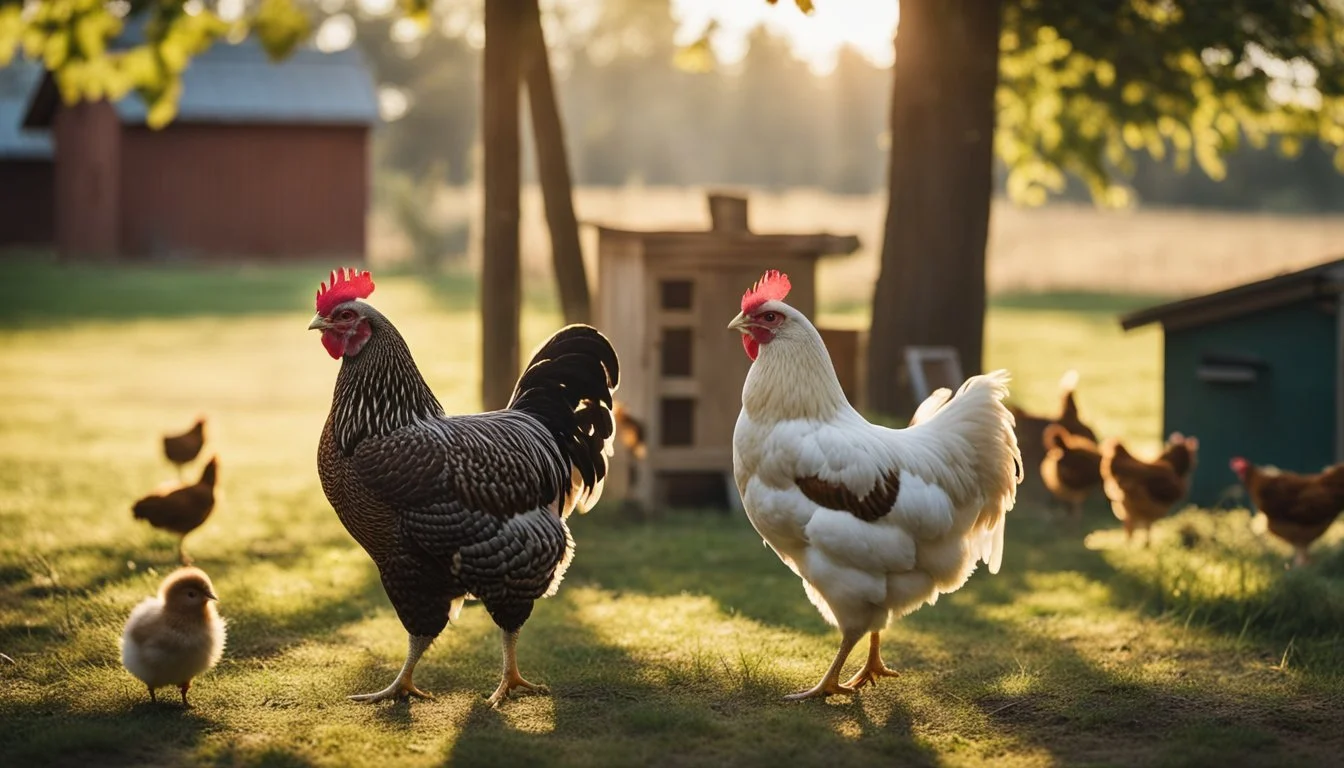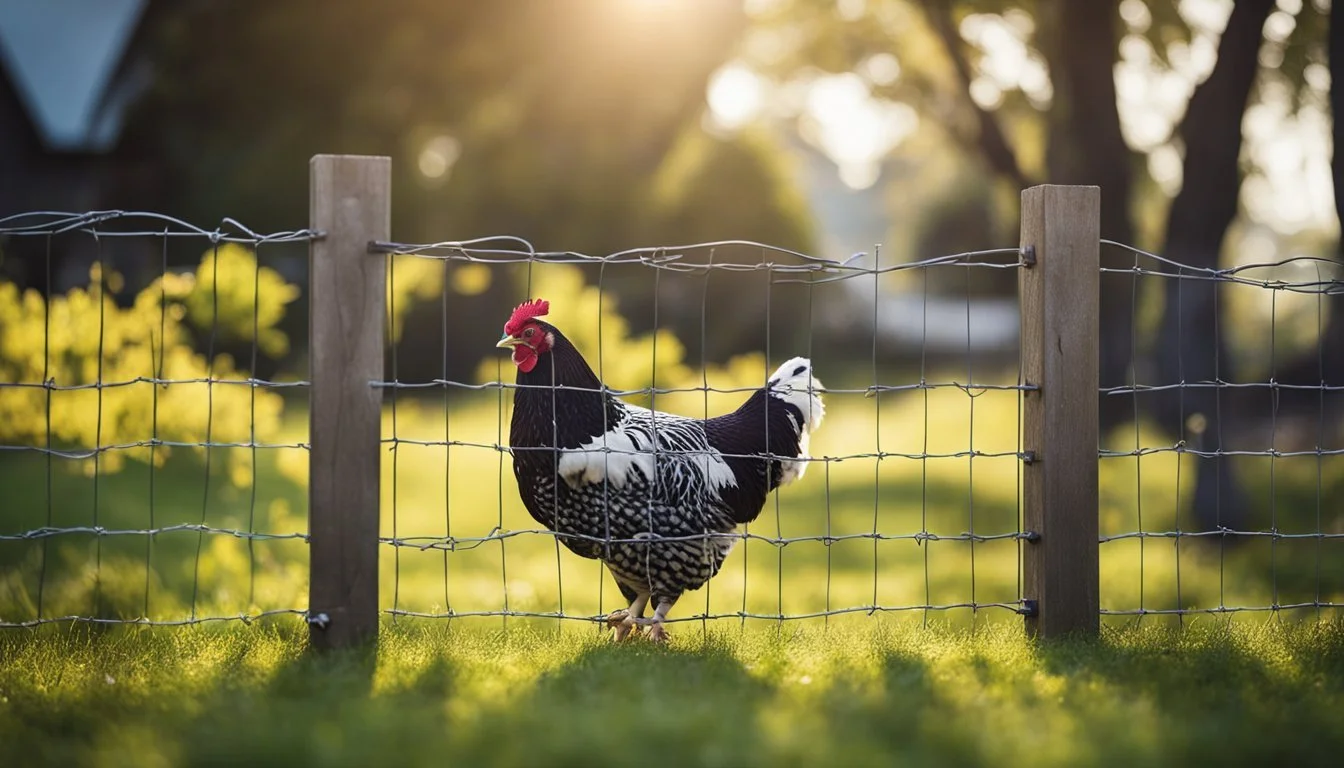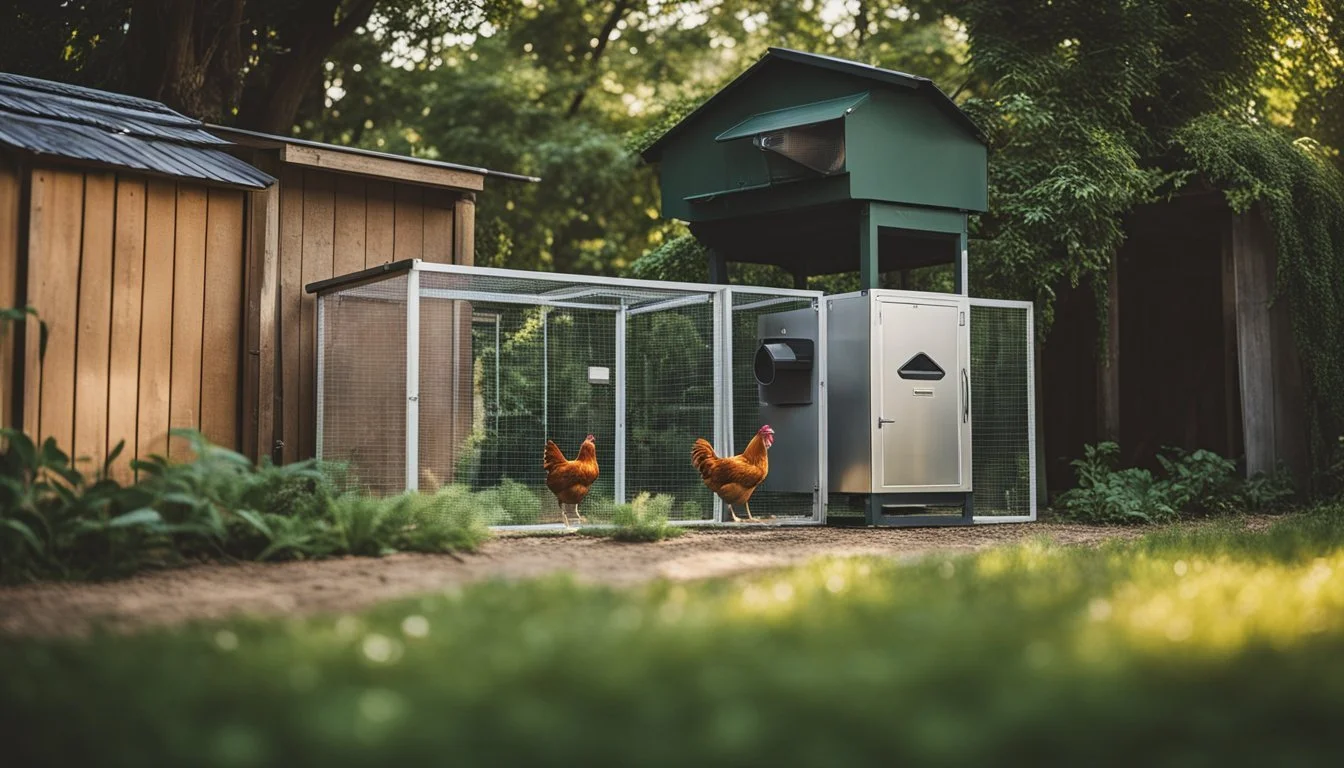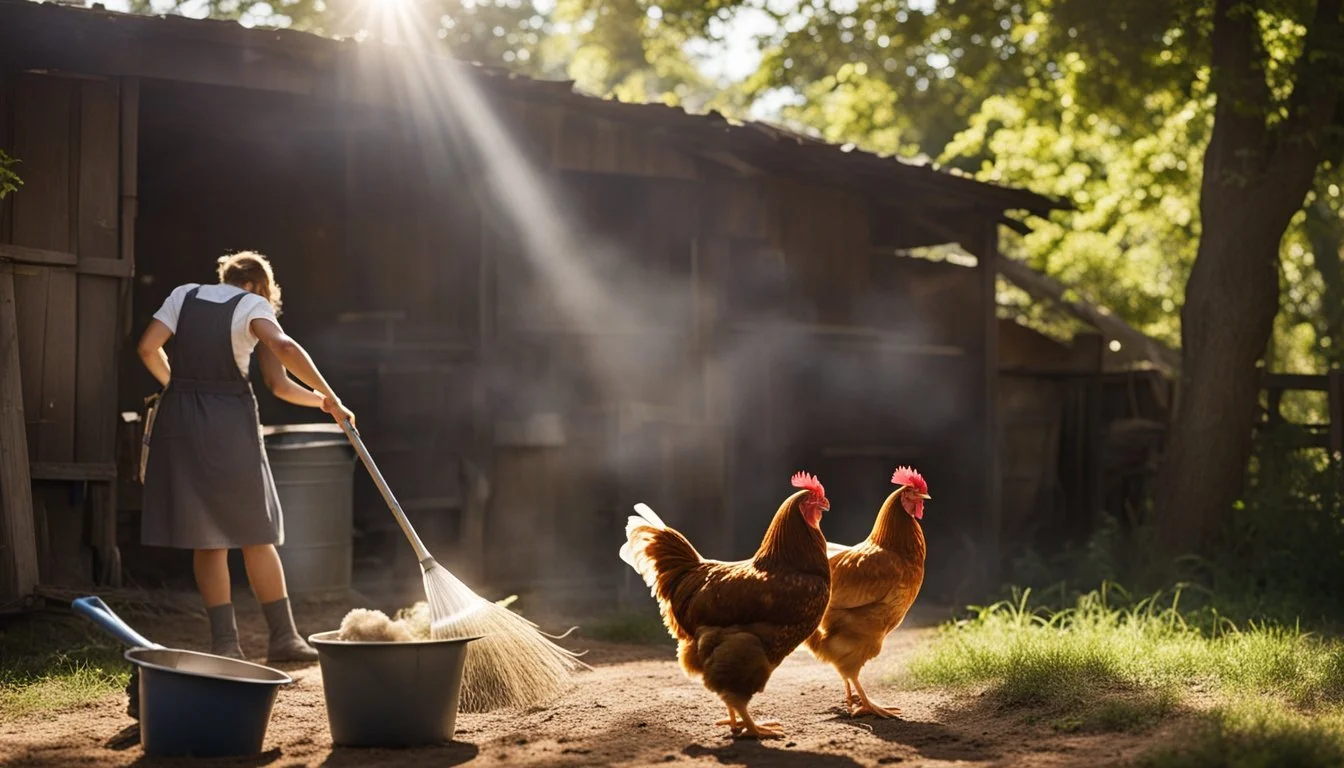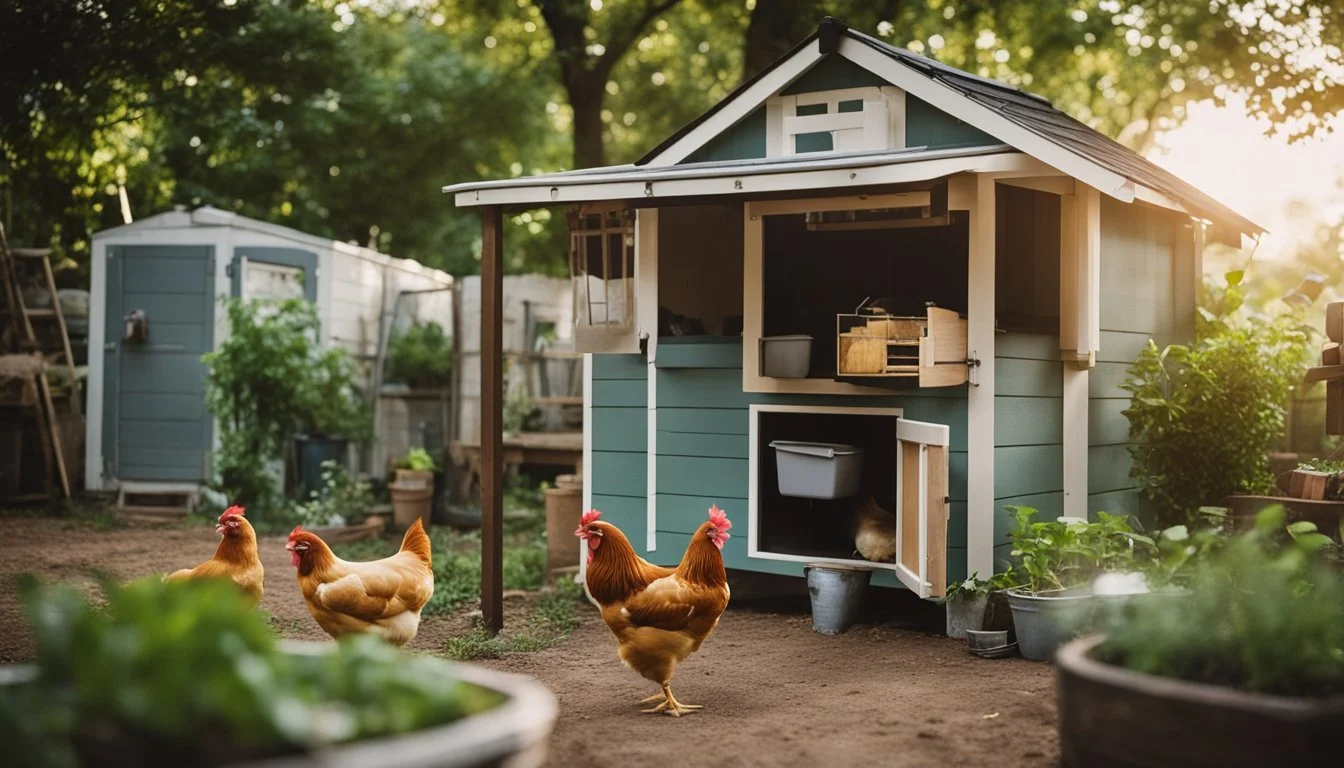7 Tips for Raising Chickens in a Rental Property
Ensure Harmony and Success
Raising chickens can be a rewarding endeavor, even for those living in rental properties. Keeping chickens provides fresh eggs, natural pest control, and a sense of responsibility and connection to nature. Understanding how to manage chickens within the constraints of a rental lease is crucial to maintaining harmony with both the landlord and neighbors.
Navigating the rules and practicalities of keeping chickens on rented land requires careful planning and clear communication. By adhering to your lease agreement and local ordinances, you can successfully integrate a small flock of chickens into your rental living situation. These tips will help you ensure that you and your chickens thrive without causing any disruption.
1) Provide Sufficient Space
Chickens need adequate space to thrive and maintain their health. Ensuring each bird has enough room inside the coop is essential. The recommended space is about 2-3 square feet per chicken in the coop. This space helps prevent overcrowding, reducing stress and the risk of disease.
The outdoor run is also important. Chickens need an area to roam, forage, and exercise. The run should provide at least 8-10 square feet per bird. This ample space promotes natural behaviors like scratching and pecking, which are critical for their well-being.
Additionally, larger breeds require more space than smaller ones. For instance, Jersey Giants need more room compared to Bantams. Understanding the space needs of different breeds helps in planning a suitable area for your flock. Ensure both the coop and run meet these space requirements to keep chickens comfortable and healthy.
2) Install Secure Fencing
Installing secure fencing is critical for keeping chickens safe on a rental property. Proper fencing prevents chickens from wandering off and protects them from predators.
Options include traditional wire mesh, hardware cloth, and electric poultry fencing. It's essential to secure the fence firmly into the ground to avoid gaps where chickens or predators could enter.
Regularly inspect and maintain the fencing to ensure continued effectiveness. Any weak spots or damage should be repaired promptly to maintain a secure environment.
Adequate height and appropriate spacing in the fencing material will prevent chickens from escaping. Typically, a height of around 6 feet is recommended.
Selecting the right type of fencing largely depends on the specific needs and layout of the rental property.
3) Create a Shelter with Proper Ventilation
Ensuring proper ventilation in a chicken shelter is crucial to maintain the health of the flock. Good airflow helps to reduce humidity and prevent the buildup of harmful gases such as ammonia from chicken waste. This is especially important in rental properties to avoid unpleasant odors and potential disputes with neighbors.
A chicken coop should have vents or windows that allow for air exchange without causing drafts. The placement of these openings should be high enough to avoid direct wind on the chickens. This setup helps to keep the coop dry and prevents respiratory issues.
Using materials like wire mesh for ventilation openings can keep predators out while allowing fresh air flow. Adjustable ventilation options can help manage airflow according to the weather.
Proper insulation in walls and roofs combined with adequate ventilation ensures that the coop remains comfortable in both hot and cold weather. This balance helps in maintaining a stable temperature, reducing stress for the chickens.
Regularly check and clean the vents to keep them free from dust and debris. Blocked ventilation can lead to poor air quality and affect the chickens' health. By providing a well-ventilated shelter, they can thrive in a safe and comfortable environment, even in a rental property.
4) Provide Fresh Water Daily
Fresh water is essential for chickens' health and well-being. They need constant access to clean water to stay hydrated, especially in hot weather. Providing fresh water daily ensures they drink enough and prevents the water from becoming contaminated.
Water containers should be cleaned regularly with mild detergent or poultry-safe disinfectant. Dirty waterers can discourage chickens from drinking, leading to dehydration.
Adding natural treatments like apple cider vinegar can help maintain water quality. A small amount, such as one tablespoon per gallon, can keep the water cleaner and offer health benefits.
In summer, keep water cool by adding ice cubes or frozen water bottles. This helps maintain a suitable temperature, so chickens are more likely to stay hydrated.
Ensuring easy access to water at all times is critical. Place waterers in accessible, shaded areas to encourage regular drinking.
5) Use High-Quality Chicken Feed
Using high-quality chicken feed is essential for maintaining a healthy and productive flock. Proper nutrition directly impacts growth, egg production, and general well-being.
Opt for organic chicken feed whenever possible. Organic feed often contains higher-quality ingredients and fewer additives, ensuring your chickens receive a balanced diet.
Always check the ingredients list on the feed bag. Look for feeds that include essential nutrients such as proteins, vitamins, and minerals.
Feed should be appropriate for the age and purpose of the chickens. For instance, starter feed is suited for chicks, while layer feed is designed for egg-laying hens.
Investing in quality feeders helps minimize waste and ensures that feed remains clean and accessible. Well-designed feeders reduce the risk of contamination and spillage.
Providing the right feed and maintaining feeding equipment goes a long way in keeping chickens healthy and happy.
6) Regularly Clean the Coop
Maintaining a clean chicken coop is essential for the health and well-being of the flock. Regular cleaning helps prevent disease, removes odors, and ensures a comfortable environment for the birds.
Cleaning should be done weekly. Remove all bedding and debris. Dispose of this material in a compost pile or suitable waste area.
Use a solution of white vinegar and water in a spray bottle for disinfecting surfaces. Vinegar is effective at killing bacteria and is safe for chickens. Avoid using harsh chemicals that could harm the birds.
Cover the floor with a tarp and fresh bedding. When it’s time to clean, the tarp can be easily removed and the bedding replaced. This method simplifies maintenance and keeps the flooring dry.
While cleaning, check on the condition of the chickens. Look for signs of illness such as lethargy or unusual behavior. Regular health checks can prevent issues from escalating.
Reapply disinfectant to the coop, ensuring all areas are covered. Allow the coop to dry completely before reinstalling any bedding. Proper drying time helps prevent mold and mildew growth.
Regular cleaning promotes a healthy environment, creating a safe space for the chickens to thrive.
7) Monitor Health with Routine Checks
Conducting regular health checks ensures chickens remain healthy. Consistent monitoring helps catch potential health issues early. Observing the behavior and appearance of each chicken can provide valuable insights.
Eye and nostril examinations are crucial. Healthy eyes appear bright and shiny. Nostrils should be clear and free from discharge. Checking each chicken's eyes for responsiveness to movement helps identify blindness.
Inspecting a chicken's legs and feet is equally important. Look for signs of swelling, cuts, or abnormal scales. Applying treatments like warm soapy water and olive oil can address certain conditions, such as scaly leg mites. Routine foot care prevents long-term problems.
Feather condition serves as a good health indicator. Moulting chickens may look scruffy temporarily, but patchy, ragged feathers outside these cycles suggest underlying issues. Regularly checking feathers ensures overall well-being.
Daily observation and routine checks work together. Even small changes in behavior, like decreased activity or appetite, can signal health issues. Committing to attentive monitoring helps maintain a healthy flock in a rental property.
Understanding Rental Agreements
When raising chickens in a rental property, it's crucial to understand the terms and conditions in your rental agreement. This section covers how to negotiate terms with landlords and understand pet policies and permissions that may impact your ability to keep chickens.
Negotiating Terms with Landlords
Negotiating terms with landlords requires clear communication. Tenants should start by discussing their intent to keep chickens and explaining the benefits, such as fresh eggs and pest control. They must be prepared to address any concerns the landlord might have regarding noise, smell, and potential damage to the property.
It's helpful to present a detailed plan illustrating how the chickens will be managed, including maintaining cleanliness and proper housing. Additionally, offering to sign a pet addendum specifically for the chickens can show the landlord that the tenant is serious and responsible. This document could include specifics about the number of chickens, their care, and any potential responsibilities for repairs if damage occurs.
Tenants should consider:
Discussing the benefits of keeping chickens.
Presenting a management plan for the chickens.
Offering to sign a pet addendum.
Pet Policies and Permissions
Pet policies in rental agreements can often be strict. It's essential to determine if chickens are classified as pets under these policies, as some agreements might not explicitly mention them. If the lease has a no-pets clause, tenants must seek written permission from the landlord to keep chickens.
Fair housing laws may require landlords to accommodate emotional support animals, which could influence their stance on chickens if they're documented as such. Tenants should provide clear documentation and be prepared to comply with all rules set out in the lease to avoid any misunderstandings.
This approach fosters a transparent and cooperative relationship, increasing the likelihood of landlord approval.
Points to address:
Clarify if chickens are considered pets.
Seek written permission if necessary.
Provide any needed documentation.
Essential Chicken Care Tips
Proper care of chickens involves ensuring their nutritional needs are met and their living environment is kept clean and safe. Below are detailed guidelines on feeding, nutrition, and coop maintenance.
Feeding and Nutrition
Chickens require a balanced diet to remain healthy and productive. Commercial feed is the primary source of nutrition, formulated with essential vitamins and minerals. It's essential to select the appropriate feed type based on the chicken's age and purpose.
Layer feed is ideal for hens that are laying eggs, while starter feed contains higher protein levels suitable for chicks. Incorporating grit into their diet aids in digestion, as chickens use grit to grind down their food.
Supplement their diet with fresh greens, fruits, and vegetables but avoid harmful foods like onions, chocolate, and avocados. Providing clean, fresh water is crucial; chickens need constant access to water to stay hydrated and maintain their health.
Coop Maintenance and Hygiene
Maintaining a clean coop is vital for the chickens' health. Regularly remove chicken waste and old bedding to prevent the buildup of ammonia, which can cause respiratory issues. Choose absorbent materials, such as straw or wood shavings, for bedding to help control moisture levels.
Inspect the coop for signs of pests or parasites and take necessary actions if any are found. Ventilation is equally important to ensure that fresh air circulates, reducing the risk of disease.
Ensure the coop provides adequate space: at least 3 square feet per chicken inside the coop and 10 square feet per chicken in the run. Regular cleaning and proper management help prevent the spread of diseases and parasites, keeping the flock healthy and happy.
Managing Noise and Odors
Reducing noise and controlling odors are crucial when raising chickens in a rental property to maintain good relations with neighbors and comply with local regulations.
Choosing the Right Breeds
Selecting quieter breeds can significantly reduce noise issues. Silkies, Cochins, and Australorps are known for being more subdued. It is advisable to avoid roosters, as they tend to be louder and more likely to disturb neighbors.
Noise can also be influenced by the time of day. Ensure chickens have a dark, quiet space for nighttime roosting. This minimizes early morning crowing and helps establish a routine that keeps noise levels low.
A proper diet also plays a role in maintaining calm behavior. Overfeeding or underfeeding can lead to restless behavior, causing unnecessary noise.
Effective Ventilation Techniques
Proper ventilation is essential in controlling odors in the chicken coop. Installing windows or screened vents at opposite ends of the coop creates a cross-ventilation system that helps dissipate smells effectively.
Litter management plays a key role in reducing odors. Using materials like pine shavings or straw absorbs waste and moisture, keeping the coop fresher. Regular cleaning and replacing the litter are crucial in maintaining a pleasant environment.
Adopting the deep litter method can also be advantageous. By allowing manure and bedding materials to decompose naturally, a stable and odor-free environment is achieved. Regularly turning the litter and adding fresh bedding can help manage odors sustainably.

